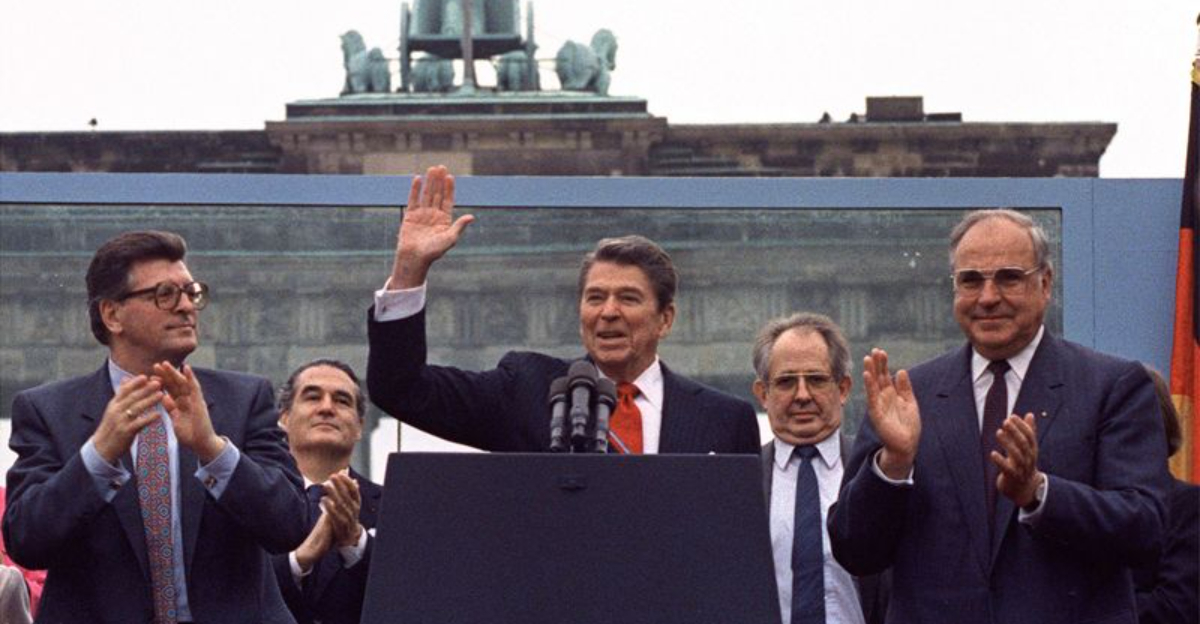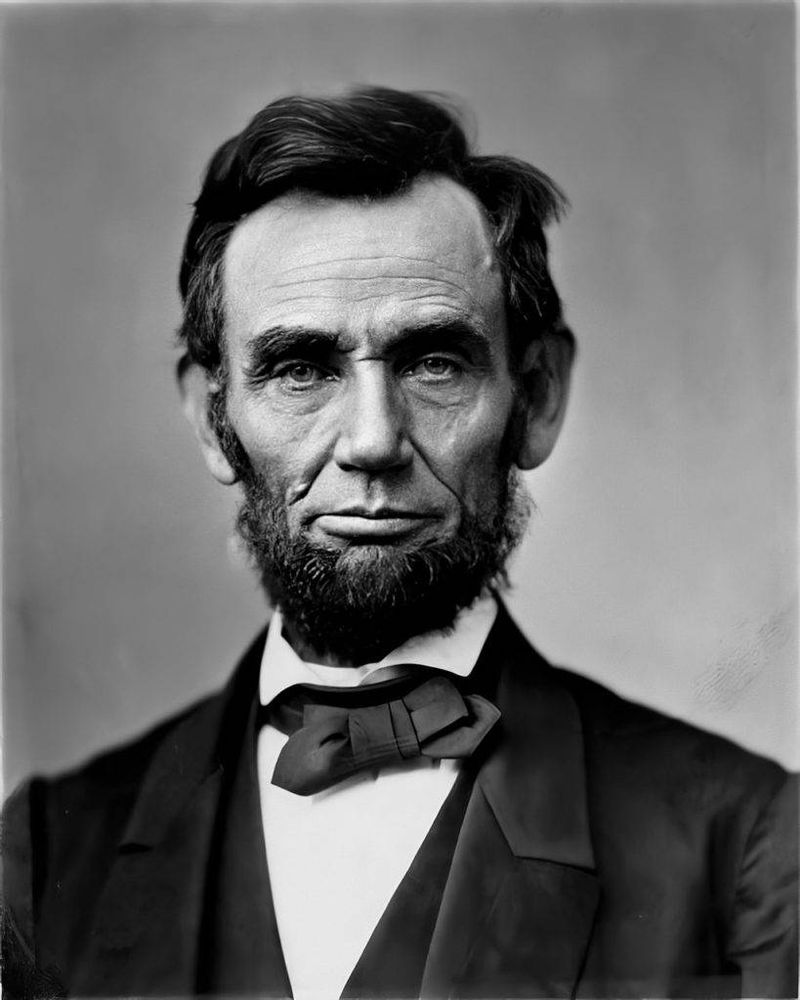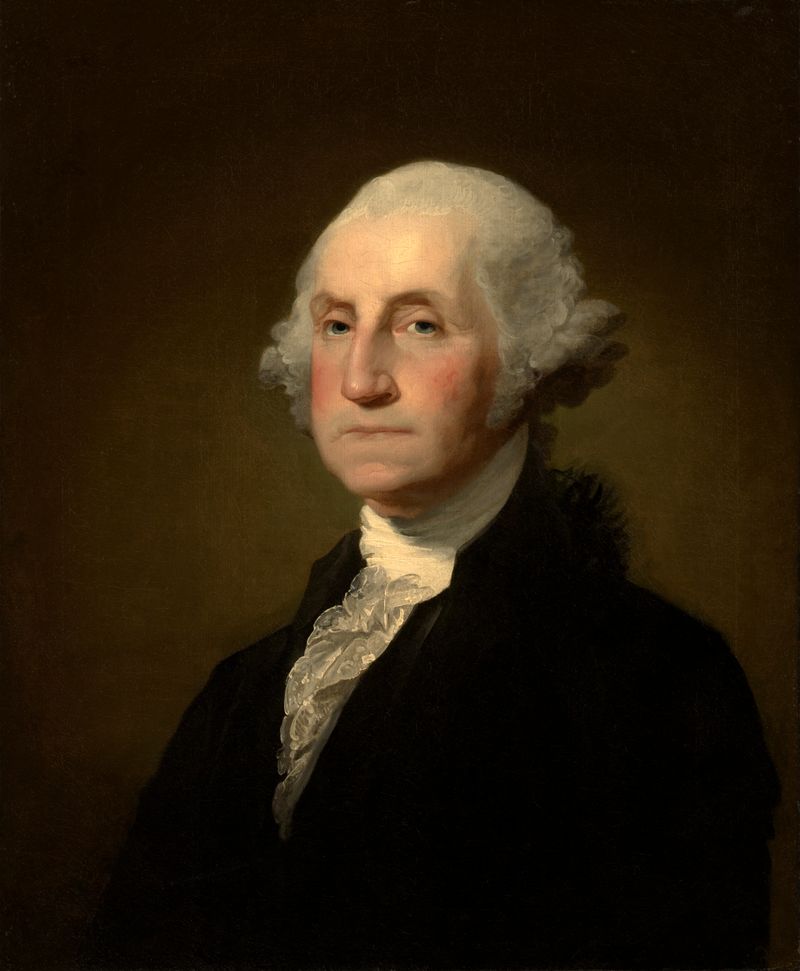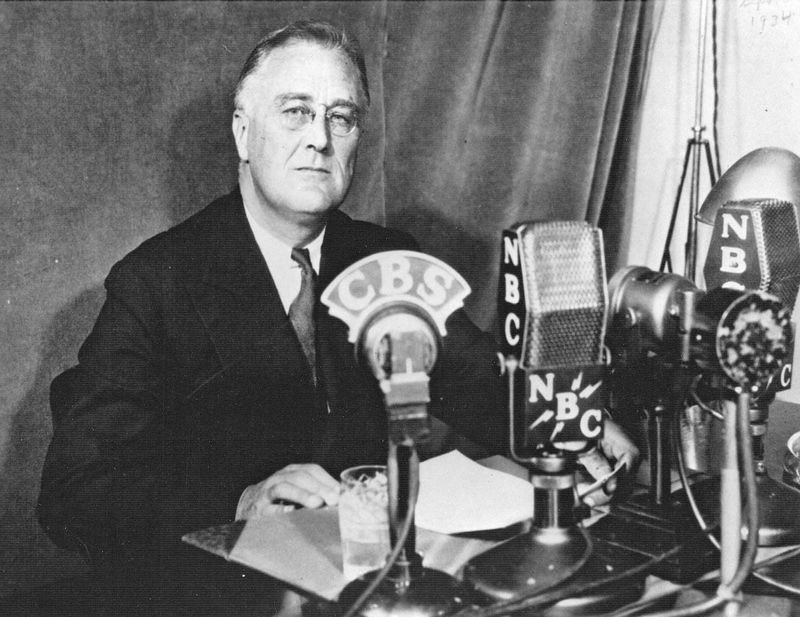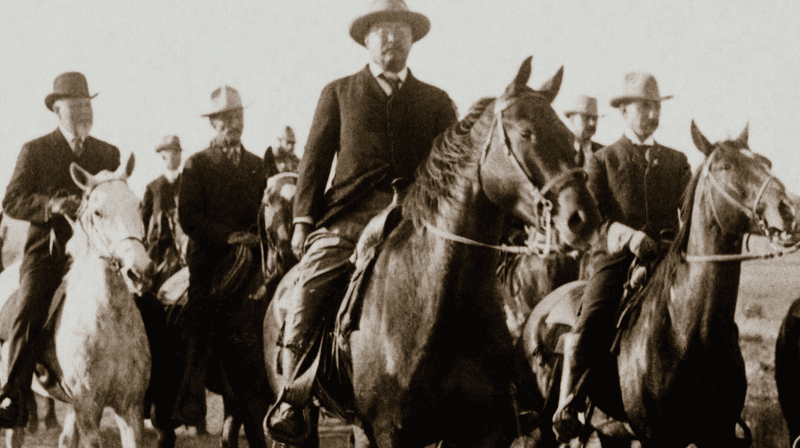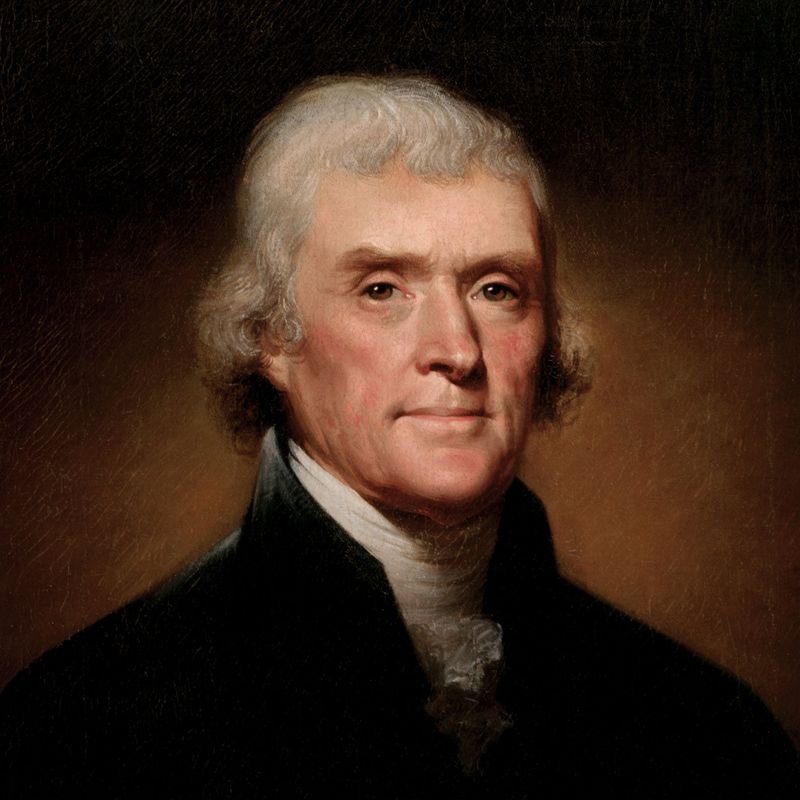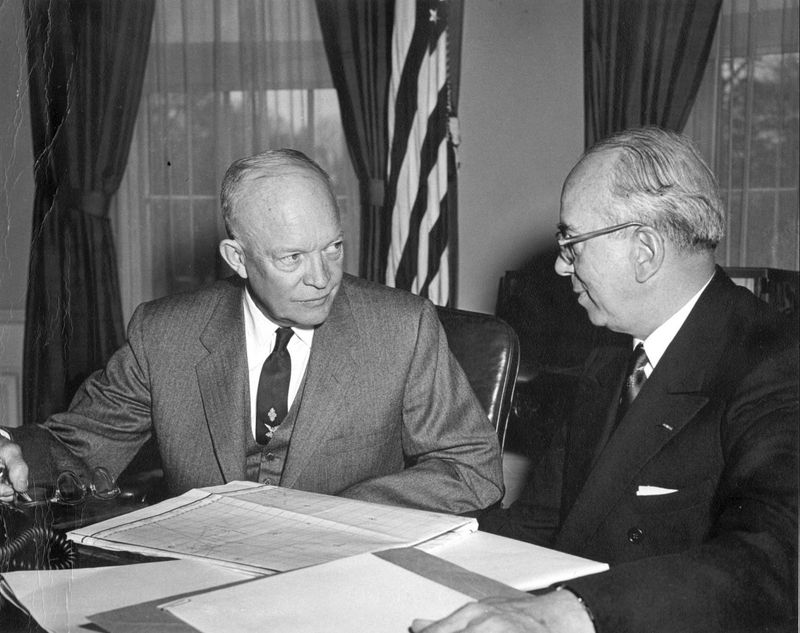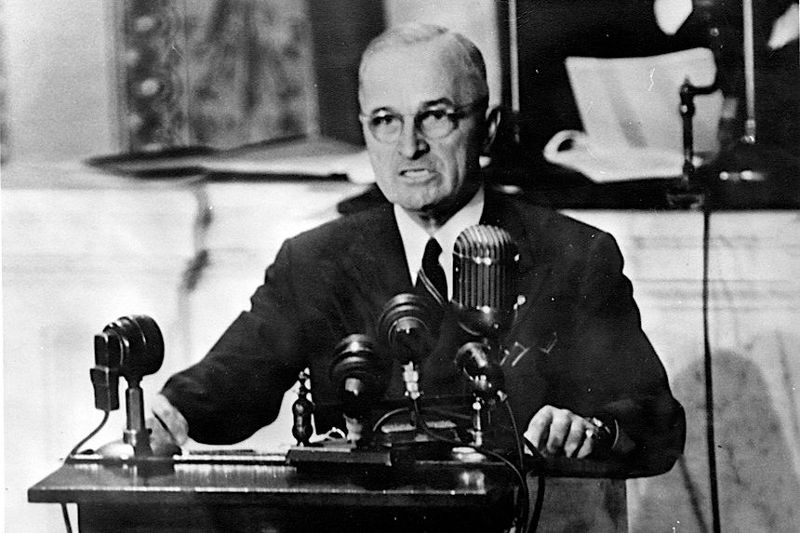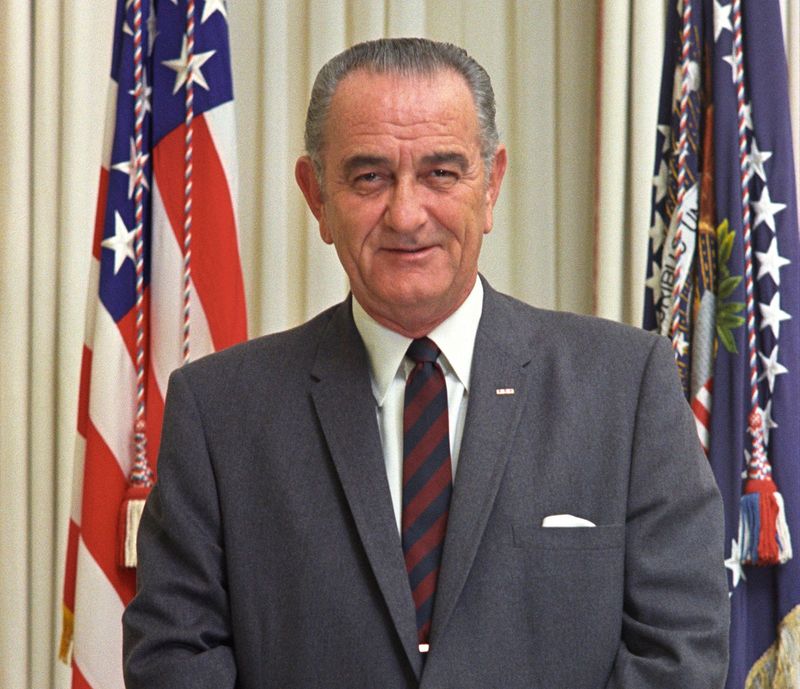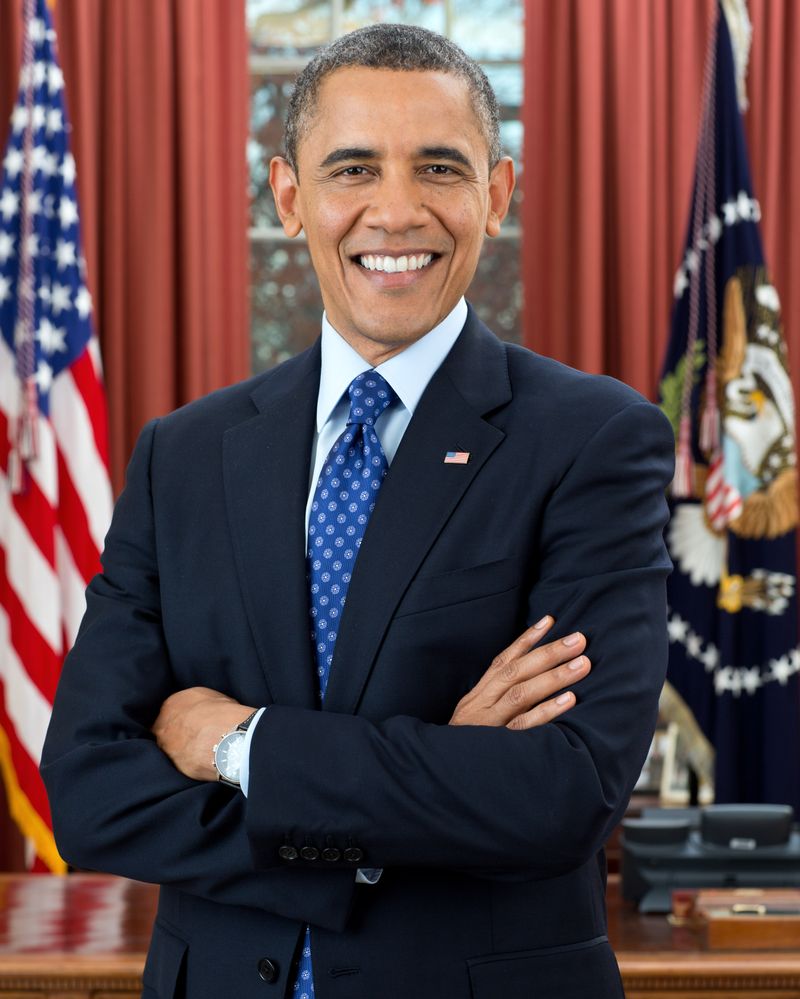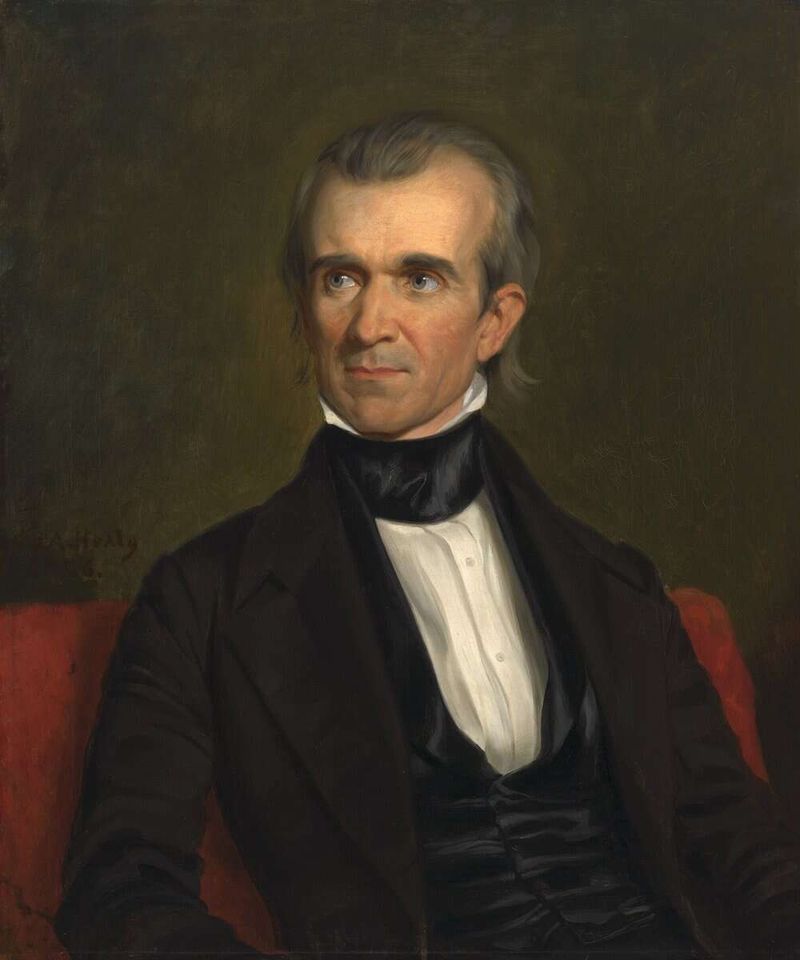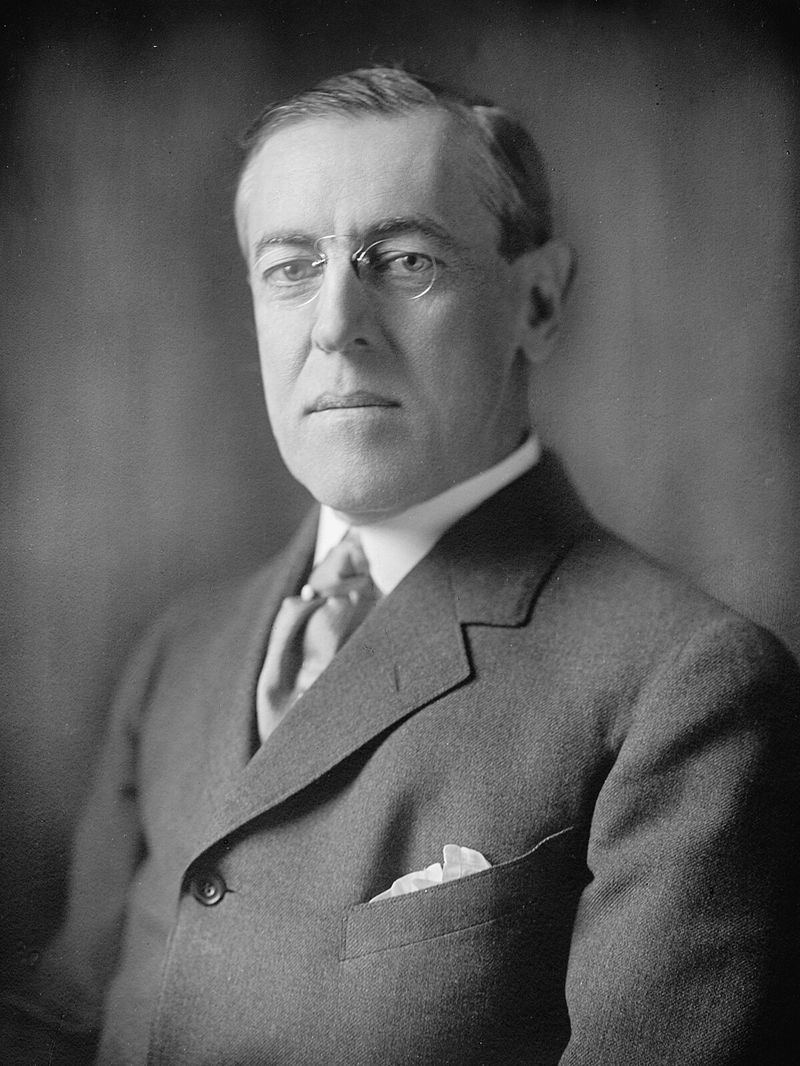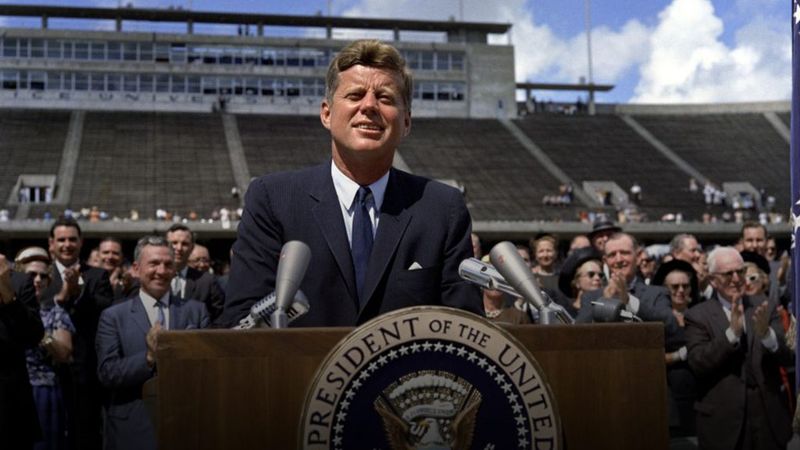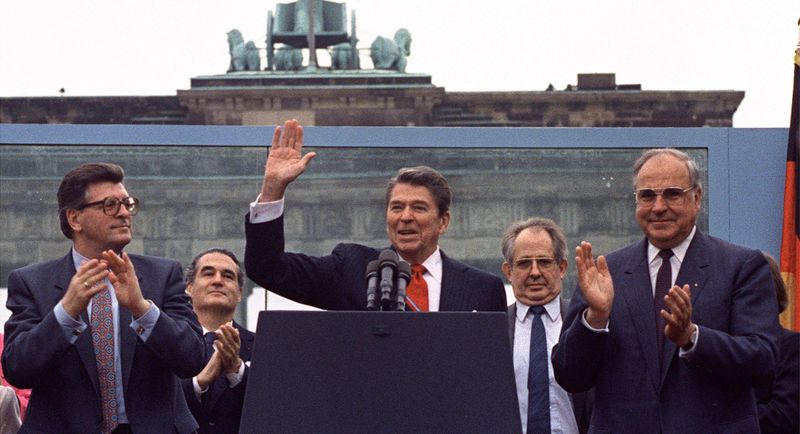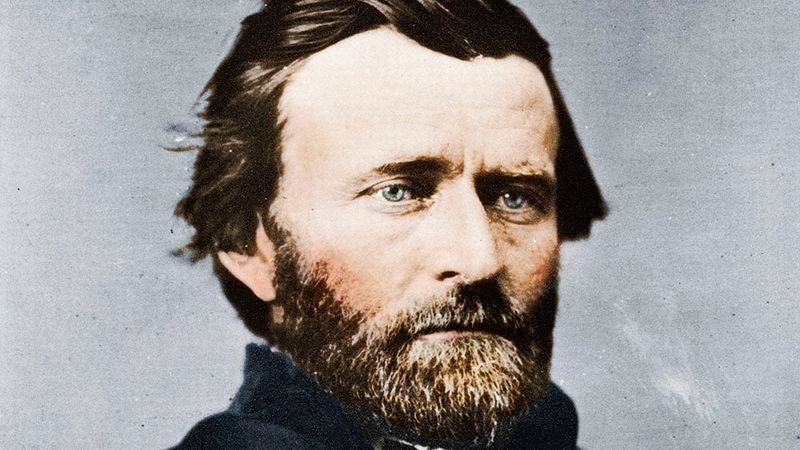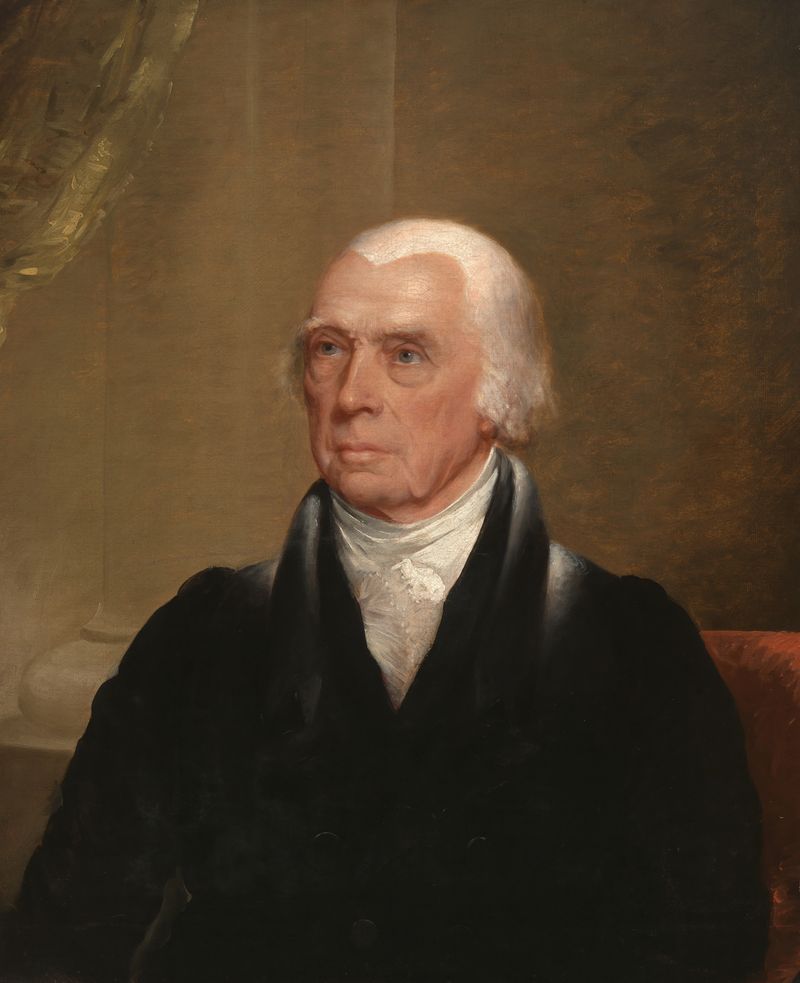The United States has seen a myriad of leaders throughout its history, each leaving an indelible mark on the nation. This guide delves into the top 15 American presidents who have shaped the country’s course. From establishing foundational principles to steering the nation through turbulent times, these leaders exemplified resilience, vision, and dedication.
1. Abraham Lincoln (1861–1865)
Abraham Lincoln, with his towering stature and powerful presence, led the United States through its most divisive period—the Civil War. His dedication to preserving the Union was matched by his moral resolve to end slavery, culminating in the Emancipation Proclamation and the 13th Amendment.
His profound words at Gettysburg reimagined American democracy, emphasizing equality and liberty. Tragically, his vision was cut short by an assassin’s bullet just days after the Confederacy surrendered.
Lincoln’s legacy is one of strength and compassion, forever engraving him in the annals of American history.
2. George Washington (1789–1797)
George Washington, often called the “Father of His Country,” set pivotal precedents as the nation’s first president. His leadership was instrumental in guiding the nascent republic through its formative years, ensuring its survival and prosperity.
By voluntarily stepping down after two terms, he established a tradition of peaceful transitions of power, warding off potential tyranny. His wisdom and foresight laid the groundwork for future generations.
Washington’s legacy as a leader of integrity and vision endures, with his image and ideals perennially celebrated in American culture.
3. Franklin D. Roosevelt (1933–1945)
Franklin D. Roosevelt, a beacon of hope in tumultuous times, steered America through the Great Depression and World War II. His New Deal policies revitalized the economy, providing relief and jobs to millions.
During the war, his leadership united the nation against the Axis powers, ultimately leading to victory. Elected four times, Roosevelt’s tenure exemplifies resilience and innovation in governance.
His ability to inspire and reassure the American public left an indelible mark, with his Fireside Chats becoming legendary. Roosevelt’s legacy is one of courage and compassion, forever etched in history.
4. Theodore Roosevelt (1901–1909)
Theodore Roosevelt, a dynamic force of nature, invigorated the presidency with his energy and progressive vision. Known for his “Square Deal,” he championed reforms that curbed corporate excess, protected consumers, and supported labor rights.
His passion for conservation led to the establishment of national parks and forests, preserving America’s natural beauty for future generations. Awarded the Nobel Peace Prize for mediating the Russo-Japanese War, he displayed diplomacy and strength.
Roosevelt’s legacy is one of vigor and commitment to the public good, embodying the spirit of the American West and frontier.
5. Thomas Jefferson (1801–1809)
Thomas Jefferson, the chief architect of the Declaration of Independence, left a profound legacy with his belief in liberty and equality. As president, his vision expanded with the Louisiana Purchase, doubling the size of the U.S.
This acquisition opened up the continent for exploration and settlement, fostering westward expansion. Despite his achievements, Jefferson’s contradictions on slavery remain a blemish on his record.
His intellectual pursuits and dedication to education led to the founding of the University of Virginia. Jefferson’s legacy is a tapestry of innovation and complexity, reflecting the diverse ideals of America.
6. Dwight D. Eisenhower (1953–1961)
Dwight D. Eisenhower, a strategic mastermind, balanced Cold War tensions with skillful diplomacy and military preparedness. His military background and calm demeanor earned him the trust of the American people.
The Interstate Highway System, one of his significant domestic achievements, transformed America’s landscape and economy. Eisenhower’s warning about the “military-industrial complex” highlighted his foresight in safeguarding democracy.
His presidency is remembered for its stability and progress, with a focus on peace and prosperity. Eisenhower’s legacy is one of vigilance and infrastructural innovation, echoing through the highways of America.
7. Harry S. Truman (1945–1953)
Harry S. Truman, a president of decisive action, played pivotal roles at the dawn of the Cold War. Ending World War II with the controversial atomic bomb decision, he ushered in a new era of geopolitics.
His Marshall Plan revitalized war-torn Europe, curbing the spread of communism and fostering transatlantic alliances. Domestically, Truman’s move to desegregate the military marked a significant step in civil rights.
His plain-spoken style and tough decisions define his presidency, remembered for navigating post-war challenges. Truman’s legacy is one of bold leadership and commitment to freedom and democracy.
8. Lyndon B. Johnson (1963–1969)
Lyndon B. Johnson, a master of legislative maneuvering, ushered in transformative social reforms. His “Great Society” initiatives, including Medicare and the War on Poverty, aimed to uplift the marginalized.
The Civil Rights and Voting Rights Acts were landmark achievements, reshaping American society towards greater equality. However, his escalation of the Vietnam War cast a shadow over his domestic accomplishments.
Johnson’s complex legacy mixes visionary leadership with controversial decisions. His presidency is a testament to the power of ambition and the challenges of governance. Johnson’s impact on civil rights remains enduring.
9. Barack Obama (2009–2017)
Barack Obama, with his eloquence and poise, became a symbol of hope and change as the first Black president. The Affordable Care Act, his signature domestic policy, expanded healthcare access to millions.
Internationally, his administration successfully located and killed Osama bin Laden, reaffirming America’s commitment to global security. Obama’s presidency inspired a new generation, emphasizing inclusivity and progress.
His tenure highlighted the complexities of modern governance, with economic recovery and diplomacy at the forefront. Obama’s legacy is one of aspiration and steadfastness, marking a new chapter in American history.
10. James K. Polk (1845–1849)
James K. Polk, a determined leader, achieved all his campaign promises within a single term. His presidency saw the U.S. expand westward after victory in the Mexican-American War, adding significant territories.
Polk’s focus on Manifest Destiny shaped the nation’s trajectory, though it came at the expense of Native American lands. His unwavering resolve and strategic prowess marked his time in office.
While not without controversy, Polk’s impact on the American landscape and identity is undeniable. His legacy is one of ambition and territorial expansion, forever influencing the course of American history.
11. Woodrow Wilson (1913–1921)
Woodrow Wilson, with his scholarly demeanor, guided the U.S. through World War I with a vision for global peace. His progressive reforms, like the Federal Reserve and the FTC, modernized the American economy.
Wilson’s Fourteen Points laid the foundation for the League of Nations, although the U.S. never joined due to Senate opposition. Despite his achievements, his administration’s racial policies remain a stain on his record.
Wilson’s tenure is a blend of idealism and contradiction, reflecting the complexities of early 20th-century governance. His legacy is one of reform and internationalism, shaping both domestic and global dynamics.
12. John F. Kennedy (1961–1963)
John F. Kennedy, with his youthful charm and vision, invigorated the American spirit during his brief presidency. The Cuban Missile Crisis, a pinnacle of his tenure, showcased his diplomatic skill in averting nuclear conflict.
His inspirational “Moon speech” galvanized the nation, setting the stage for America’s space achievements. Kennedy’s assassination left a legacy of unfulfilled potential and enduring fascination.
His presidency is remembered for its promise and dynamism, defining an era of optimism and change. Kennedy’s legacy is one of charisma and leadership, continuing to captivate the American imagination.
13. Ronald Reagan (1981–1989)
Ronald Reagan, known as the “Great Communicator,” revived a nation weary from economic stagnation. His economic policies, dubbed “Reaganomics,” spurred growth and optimism.
A staunch opponent of Soviet communism, his negotiations with Gorbachev were pivotal in ending the Cold War. Despite controversies like the Iran-Contra affair, Reagan’s charm and rhetoric left a lasting impression.
His presidency is seen as a period of renewal and confidence, reshaping the political landscape. Reagan’s legacy is one of communication and conviction, reflected in his enduring influence on American politics.
14. Ulysses S. Grant (1869–1877)
Ulysses S. Grant, a Civil War hero, battled domestic strife during his presidency. His efforts to crush the Ku Klux Klan and enforce Reconstruction were hallmarks of his commitment to civil rights.
The 15th Amendment, ensuring Black voting rights, was a significant achievement under his leadership. However, his administration was marred by corruption scandals, overshadowing his progressive causes.
Grant’s presidency is a complex blend of triumph and turmoil, reflecting the challenges of post-war reconstruction. His legacy is one of military valor and civil rights advocacy, enduring despite administrative setbacks.
15. James Madison (1809–1817)
James Madison, revered as the “Father of the Constitution,” played a crucial role in shaping America’s foundational document. His presidency saw him lead the nation through the War of 1812, a defining conflict for American sovereignty.
Despite his intellectual prowess, Madison’s tenure faced challenges, including a divided nation and economic difficulties. His vision and tenacity were instrumental in navigating these trials.
Madison’s legacy is a testament to his dedication to republican principles and governance. His contributions to the Constitution and steadfast leadership underscore his lasting impact on American history.
